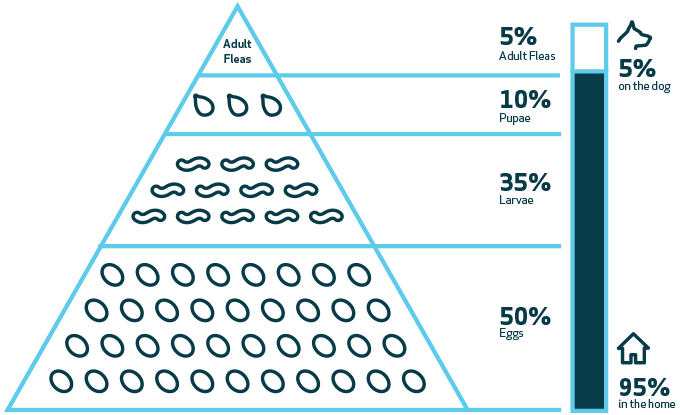Length of Life-cycle:
Average 2-14 days but it is not uncommon for eggs to take up to 12 months before hatching if conditions are unfavourable.
The beginning of the life cycle occurs when an adult female flea lays eggs following a blood meal from the host (e.g., your pet). Adult fleas can begin feeding within seconds of finding a host. They must feed to begin reproduction, and female fleas will begin producing eggs within 24 to 48 hours of taking their first blood meal.
Female fleas can produce 40 to 50 eggs per day, up to 2,000 in their lifetime.
These eggs are small, white objects (slightly smaller than a grain of sand, see picture top left) that are laid in the pet’s fur in bunches of about 20.
The eggs will fall off your pet as s/he moves, allowing them to be disbursed throughout the environment where your pet spends his or her time, so you can think of your pet as one big flea-egg “salt & pepper shaker.”
Eggs represent about one-half (50 percent) of the entire flea population present in an average home.
Eggs take anywhere from two days to two weeks to develop, hatching when environmental conditions are just right for them. If temperatures are cold and dry, the eggs will take longer; if temperatures are warm and humidity levels are high, the eggs will hatch at a faster rate.
Larvae then emerges as the next life stage.





